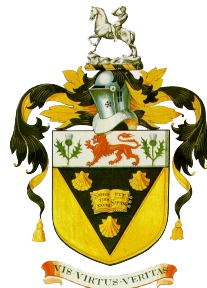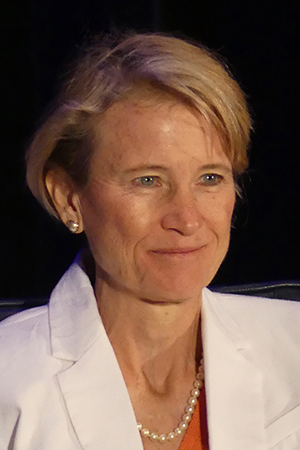Related Research Articles

Mary Beatrice Midgley was a British philosopher. A senior lecturer in philosophy at Newcastle University, she was known for her work on science, ethics and animal rights. She wrote her first book, Beast and Man (1978), when she was in her late fifties, and went on to write over 15 more, including Animals and Why They Matter (1983), Wickedness (1984), The Ethical Primate (1994), Evolution as a Religion (1985), and Science as Salvation (1992). She was awarded honorary doctorates by Durham and Newcastle universities. Her autobiography, The Owl of Minerva, was published in 2005.

Rhodes University is a public research university located in Makhanda in the Eastern Cape Province of South Africa. It is one of four universities in the province.

Country of My Skull is a 1998 nonfiction book by Antjie Krog about the South African Truth and Reconciliation Commission (TRC). It is based on Krog's experience as a radio reporter, covering the Commission from 1996 to 1998 for the South African Broadcasting Corporation. The book explores the successes and failures of the Commission, the effects of the proceedings on her personally, and the possibility of genuine reconciliation in post-Apartheid South Africa.

Tara A. Smith is an American philosopher. She is a professor of philosophy, the BB&T Chair for the Study of Objectivism, and the Anthem Foundation Fellow for the Study of Objectivism at the University of Texas at Austin.

Heather Ford is a South African researcher, blogger, journalist, social entrepreneur and open source activist who has worked in the field of Internet policy, law and management in South Africa, the United Kingdom and the United States. She is the founder of Creative Commons South Africa. She has studied the nature of power within Wikipedia and is a researcher at the University of Leeds.
Themba Mveli James Maseko is a South African businessman, former public servant, and whistleblower who was the head of the Government Communication and Information System (GCIS) between 2006 and 2011. Since July 2024, he has been the head of the Wits School of Governance at the University of the Witwatersrand. He is known for publicly accusing the Gupta brothers of attempting improperly to influence the allocation of public advertising contracts during his time at GCIS.

Steven Eli Friedman is a South African academic, newspaper columnist, intellectual, activist, former trade unionist and journalist. He holds a doctorate in Literature from Rhodes University (2007) and directs the Centre for the Study of Democracy, a joint project by Rhodes University and the University of Johannesburg. His book Building Tomorrow Today: African Workers in Trade Unions 1970-1984 has been described as a classic South African text. He has written opinion pieces for Thought Leader and The New Age and currently writes a weekly column for Business Day.
Sisi Virginia Khampepe is a retired South African judge who served in the Constitutional Court of South Africa between October 2009 and October 2021. Formerly a prominent labour lawyer, she joined the bench in December 2000 as a judge of the Transvaal Provincial Division. She was also a member of the Truth and Reconciliation Commission.
Margaret Urban Walker is an American philosopher and academic who is the Donald J. Schuenke Chair Emerita in Philosophy at Marquette University. Before her appointment at Marquette, she was the Lincoln Professor of Ethics at Arizona State University, and before that she was at Fordham University. She has also previously held visiting appointments at Washington University in St. Louis, University of South Florida, and Catholic University of Leuven.
Ethnic plastic surgery, or ethnic modification, refers to the types of plastic surgery performed frequently due to certain racial or ethnic traits, or with the intention of making one's appearance more similar or less similar to people of a particular race or ethnicity. Popular procedures which may have an ethnically motivated component are rhinoplasties and blepharoplasties.

Jacob Dlamini is a South African journalist, historian and author. He is currently an assistant professor of history at Princeton University, specialising in African history. He has written four books about South African political and social history, each of which seeks to complicate popular narratives about Apartheid and black experience in South Africa.
John Hadley is an Australian philosopher whose research concerns moral and political philosophy, including animal ethics, environmental ethics, and metaethics. He is currently a senior lecturer in philosophy in the School of Humanities and Communication Arts at Western Sydney University. He has previously taught at Charles Sturt University and the University of Sydney, where he studied as an undergraduate and doctoral candidate. In addition to a variety of articles in peer-reviewed journals and edited collections, he is the author of the 2015 monograph Animal Property Rights and the 2019 monograph Animal Neopragmatism. He is also the co-editor, with Elisa Aaltola, of the 2015 collection Animal Ethics and Philosophy.
Professor Helen Rees OBE GCOB D.Sc. Medicine LLD is a medical doctor, and the founder and executive director of Wits RHI, the largest research Institute at the University of the Witwatersrand in Johannesburg, South Africa. She is a Personal Professor in the University of Witwatersrand's Department of Obstetrics and Gynaecology, co-director and co-founder of the Wits African Leadership in Vaccinology Expertise (ALIVE), Honorary Professor in the Department of Clinical Research at the London School of Hygiene and Tropical Medicine and an Honorary Fellow at Cambridge University's Murray Edwards College, UK.
Catriona Ida Macleod is a South African researcher. She is a distinguished professor of psychology, SARChI Chair of Critical Studies in Sexualities and Reproduction, and previous Head of the Psychology Department at Rhodes University. Her research focuses on sexual and reproductive health and feminist theory in psychology. Her book "Adolescence", Pregnancy, and Abortion: Constructing a threat of degeneration received the Distinguished Publication Award by the Association for Women in Psychology. Since 2013, she has been editor-in-chief of the international journal Feminism & Psychology.

Panashe Chigumadzi is a Zimbabwean-born journalist, essayist and novelist, who was raised in South Africa.

Eusebius McKaiser was a South African political analyst, journalist, and broadcaster. Among others, he wrote for the Mail & Guardian, the Sunday Times, Foreign Policy, The Guardian, The New York Times, and Business Day, for which he wrote a weekly column. He gained prominence as a Radio 702 talk show host, and also wrote three books about South African politics and society.
Jeremy Seekings is a British-born academic who is professor of political studies and sociology at the University of Cape Town. He is the director of the university's Centre for Social Science Research.
Deborah Posel is a South African sociologist who is professor emeritus at the University of Cape Town (UCT). She was the founding director of two prominent interdisciplinary research institutes, UCT's Institute for Humanities in Africa and the Wits Institute for Social and Economic Research. Her academic interests are primarily in the historical sociology of apartheid and the sociology of post-apartheid South Africa.
Sarah Nuttall is a South African academic and cultural critic who is professor of literary and cultural studies at the University of the Witwatersrand. She was director of the Wits Institute for Social and Economic Research from 2013 to 2022. She has published widely about post-apartheid South Africa, including on topics in literary theory, cultural theory, urban theory, and aesthetics.
Christine Isabel Hofmeyr is a South African academic who specialises in literary studies and literary history. She is professor emeritus at the University of the Witwatersrand, where she became a professor of African literature in 1994. She is particularly well known for her work in postcolonialism and work on textual circulation, textual transnationalism, and the Indian Ocean world.
References
- 1 2 "Wits celebrates research excellence". Wits University. 2022. Retrieved 27 May 2023.
- 1 2 "Race and whiteness in a post-apartheid SA". Wits University. 15 December 2015. Retrieved 27 May 2023.
- ↑ "Vice-Chancellor's Distinguished Research Award". Rhodes University. 12 February 2015. Retrieved 27 May 2023.
- ↑ "Top Scholars in South Africa Honoured". ASSAf. 21 October 2021. Retrieved 27 May 2023.
- ↑ Vice, Samantha (7 September 2010). ""How Do I Live in This Strange Place?"". Journal of Social Philosophy. 41 (3): 323–342. doi:10.1111/j.1467-9833.2010.01496.x.
- ↑ McKaiser, Eusebius (1 July 2011). "Confronting whiteness". The Mail & Guardian. Retrieved 27 May 2023.
- ↑ Steward, Dave (21 July 2011). "Stop feeling guilty". Witness. Retrieved 27 May 2023.
- ↑ "Samantha Vice". The Mail & Guardian. Retrieved 27 May 2023.
- ↑ "White fear, white shame". The Mail & Guardian. 18 October 2011. Retrieved 27 May 2023.